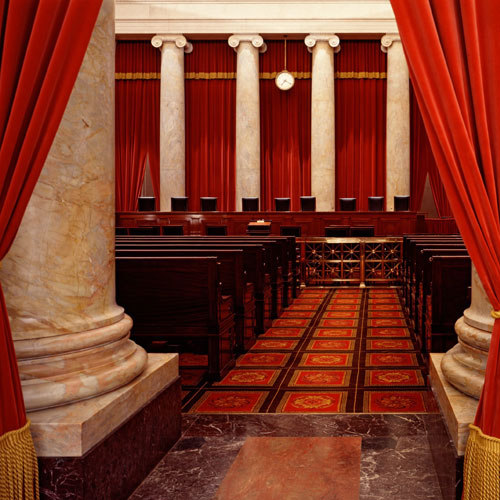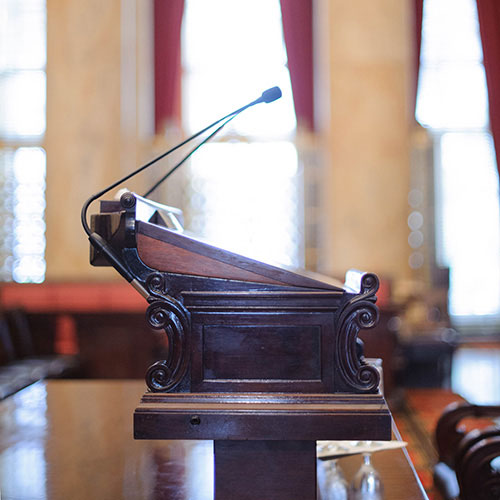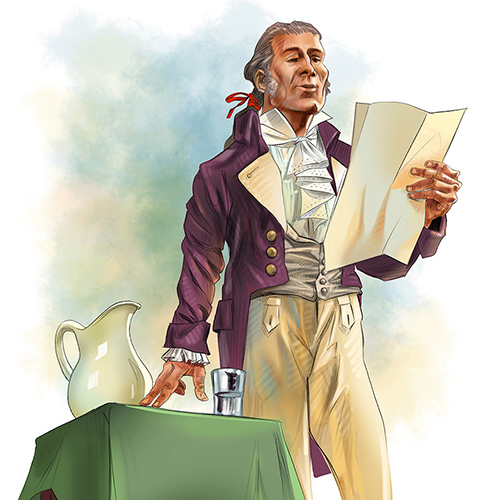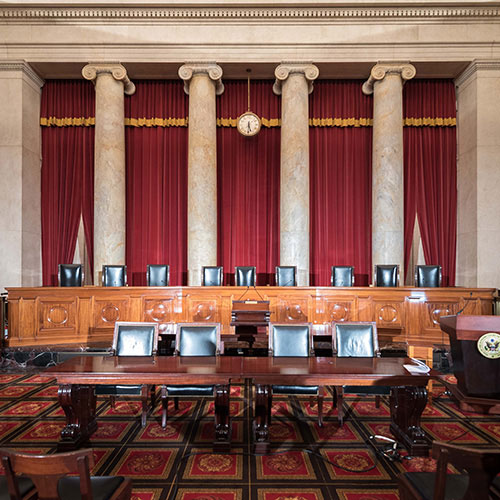The first time the Supreme Court ruled a state law unconstitutional and a formative decision upholding the Commerce Clause.
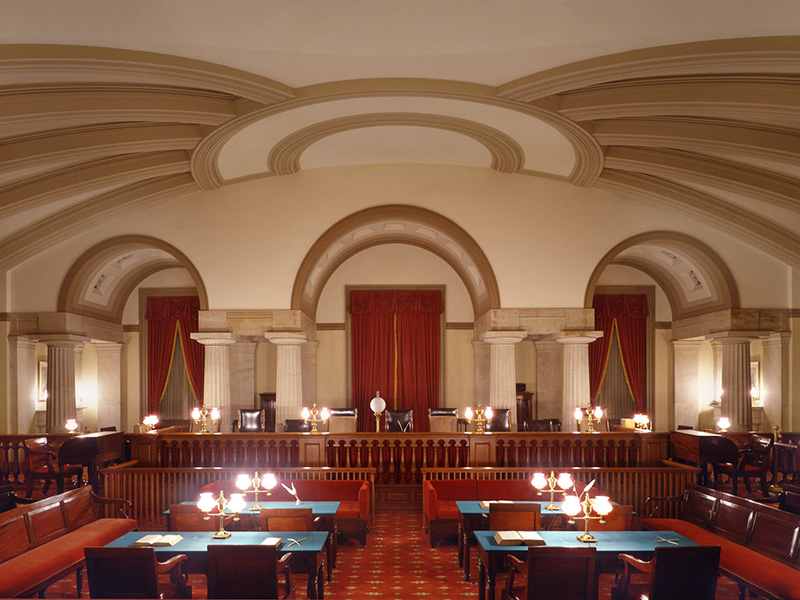
Background
When the Revolutionary War ended with the Treaty of Paris, the state of Georgia took control of a large parcel of land known as the Yazoo lands. This 35-million acre region surrounding the Yazoo River was owned by and home to the Yazoo Nation. It later became large portions of Alabama and Mississippi. In 1795, the Georgia state legislature decided to sell the land and divided it into 4 sections. The Yazoo Land Act of 1795 was enacted by the state legislature; however, it was later determined that many officials had approved it in exchange for bribes. Voters were so incensed by the scandal that many of the politicians who approved the Land Act were not re-elected and the new legislature repealed the law and voided the land purchases.
Facts
John Peck purchased 13,000 acres of land from the land grant in 1800. In 1803, Robert Fletcher purchased the land from Peck for $3,000. Fletcher later discovered, however, that the Land Act had been voided and sued Peck. Fletcher claimed that Peck had promised him good title (rights to own the land). The federal circuit court ruled in favor of Peck so Fletcher appealed to the Supreme Court of the United States.
Issue
Could the contract between Fletcher and Peck be invalidated by the Georgia legislature because the original sale of the land was invalidated by the repeal of the Yazoo Land Act? In other words, once the Georgia state legislature had passed the Land Act and sold the land, could it constitutionally reverse the sale?
Summary
Chief Justice John Marshall, wrote the opinion for the Court, and held that the Georgia legislature’s repeal of the Yazoo Land Act of 1795 was unconstitutional and violated the contract clause of the Constitution. The Court called the bribery of state officials “deplorable” but reasoned that Peck was an innocent third party who had entered into what he believed to be a legal contract and that the contract was therefore binding. As Marshall put it, “When a law is in its nature a contract, when absolute rights have vested under that contract, a repeal of the law cannot divest those rights.” The Court also ruled that Georgia did not have “sovereign power” to solve the political corruption that took place with the original land act. Fletcher’s case was dismissed and the Georgia act of 1796 was struck down because it violated the Constitution. This marked the first time that the Supreme Court declared a state law unconstitutional. It also set the precedent that the Constitution’s Contract Clause applied to the states. Justice William Johnson wrote a dissenting opinion.
Precedent Set
Though the Court’s ruling was adjusted almost two decades later in another contract case, Charles River Bridge v. Warren Bridge (1837), it remained the law until the 1930s and was an obstacle for state governments attempting to regulate businesses within their borders. In 1934, in the midst of the Great Depression, the Court set a new limited precedent allowing states to modify contracts in the name of public welfare.
Additional Context
Neither the United States nor Georgia purchased the land from the Yazoo Nation so there was the legal question of whether they had the right to sell it in the first place. While the topic of Native American property rights was briefly discussed during the trial, those rights were decided to be “occupancy for the purpose of hunting…they have no…title to the soil…it is overrun by them, rather than inhabited. It is not true and legal possession.” These ideas would shape Native American nation property rights for the foreseeable future.
Key Vocabulary:
- Revolutionary War: also known as the American Revolution, a conflict between Great Britain and their American colonies over independence.
- Treaty of Paris (1783): ended the American Revolution and formally recognized the United States as an independent nation.
- Yazoo Nation: One of twenty-one known Native American tribal nations that lived in the area of present day Mississippi between 1500-1800.
- Repealed: to revoke or annul a law or act of congress.
- Voided: Canceled.
- Title (Property): Represents the rights of legal ownership to a piece of property.
- Contract Clause of the Constitution: (Article I, Section 10) No state shall pass any law impairing the obligations of contracts.
- Deplorable: shockingly bad.
- Vested: rights from legal ownership of a property are acquired by a person.
- Sovereign Power: dominant power or authority.
- Precedent: principle or rule that applies in future similar circumstances.
Discussion Questions:
- Why is it significant that the Supreme Court ruled a state law unconstitutional?
- Why couldn’t Georgia overturn a corrupt law?
- How did Georgian voters check the power of their state legislature?
- How did this ruling impact Native American nations?
Sources:
- Fletcher v. Peck (1810)
- Fletcher v. Peck, 10 U.S. 6 Cranch 87 87 (1810).
- McBride, Alex, Supreme Court History: Capitalism and Conflict, Landmark Cases: Fletcher v. Peck (1810).
- Banner, Stuart (2005). How the Indians Lost Their Land: Law and Power on the Frontier. Cambridge: Harvard. pp. 171–172. ISBN 0-674-01871-0.
